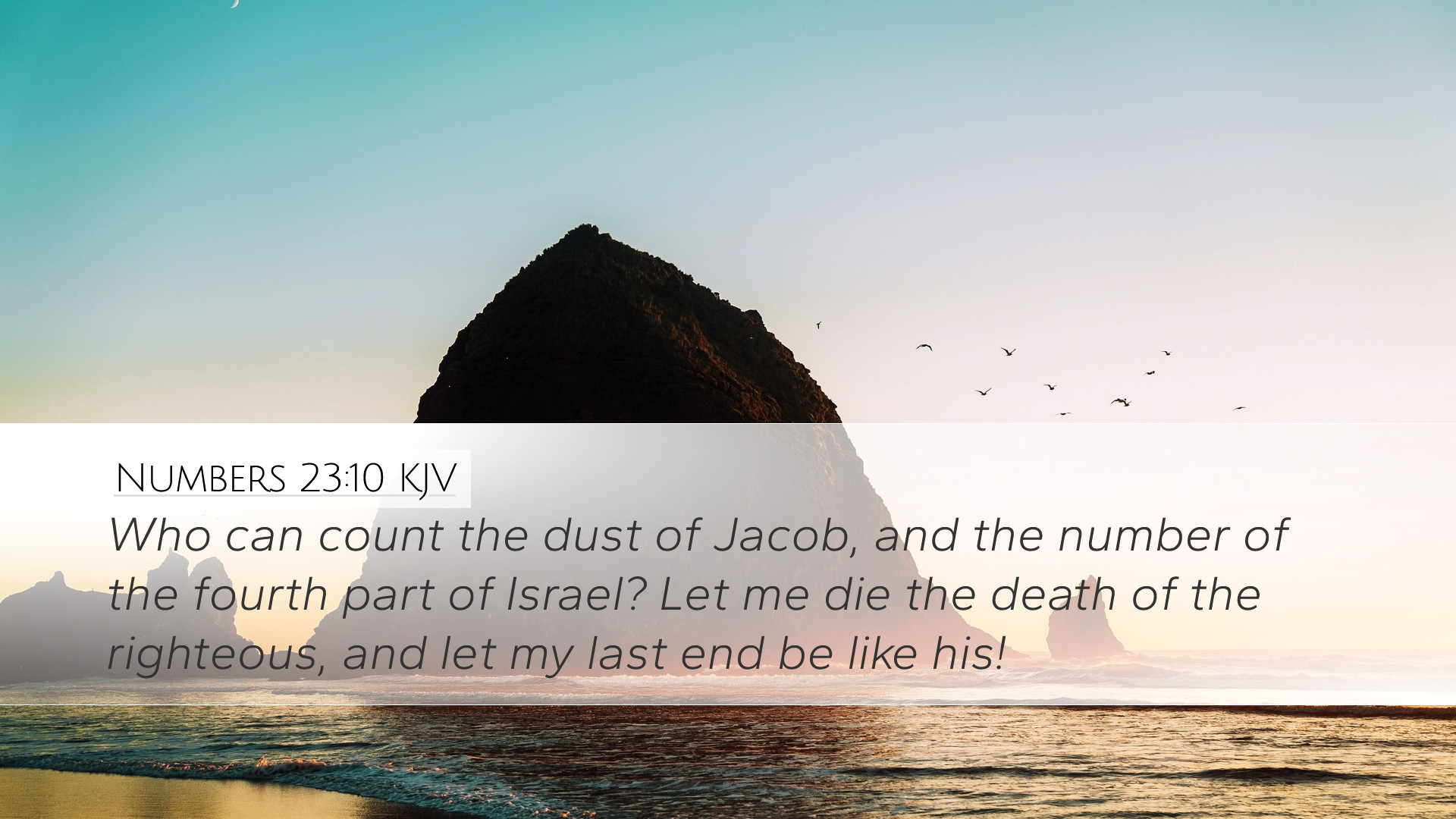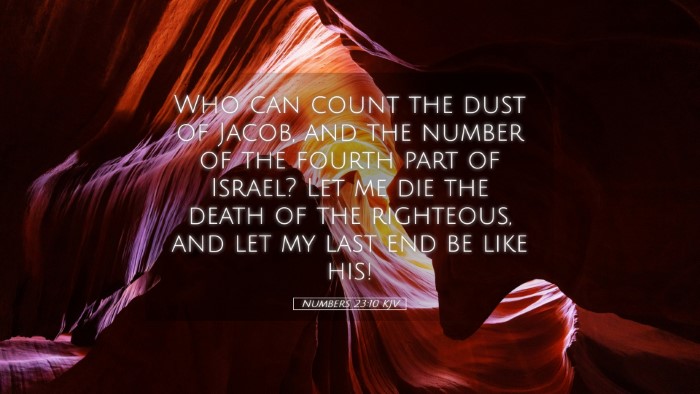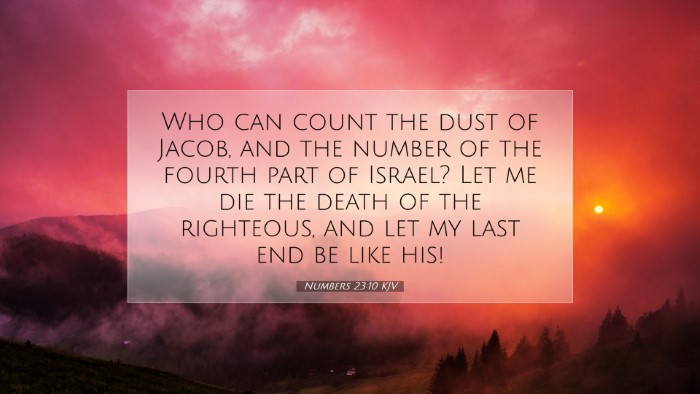Commentary on Numbers 23:10
This verse states:
"Who can count the dust of Jacob, or number the fourth part of Israel? Let me die the death of the righteous, and let my last end be like his!"
Contextual Overview
Numbers 23:10 is part of a narrative that revolves around Balaam, a non-Israelite prophet summoned by King Balak of Moab to curse the Israelites. Instead of cursing them, Balaam is compelled to bless the people of God. This verse delivers a profound statement on the greatness of Israel and the ultimate destiny of righteous believers. It reflects Balaam's realization of Israel’s destiny and the futility of opposing God’s chosen ones.
Insights from Public Domain Commentaries
Matthew Henry's Commentary
Balaam, initially hired to curse Israel, instead perceives their immense blessings. Henry emphasizes how the metaphor of counting dust signifies Israel's numerous and uncountable descendants, echoing God's promise to Abraham. The phrase "Let me die the death of the righteous" reflects Balaam's desire for a peaceful end akin to that of the Israelites, which signifies his acknowledgment of their privileged state before God.
Albert Barnes' Notes on the Bible
Barnes takes a deeper examination of the implications in Balaam’s expression. The "dust of Jacob" denotes the vast multitude that God has promised. The acknowledgment of their future underscores the blessing upon Israel’s lineage. The lamentation of dying as the righteous suggests Balaam’s underlying conflict—while he is a prophet for hire, he longs for the security and peace that accompany God’s favor, which he realizes is firmly upon Israel.
Adam Clarke's Commentary
Clarke delves into the theological implications of this verse. He notes that Balaam's statement encapsulates the blessings associated with the Israelites as a chosen people, foreseeing their triumphs. Clarke stresses that the dust metaphor not only points to numerical greatness but also symbolizes humility and the insignificance of those who rise against God’s elect. He also reflects on Balaam’s desire for righteous conduct and a blessed departure—a longing for integrity and spiritual peace at death.
Thematic Exploration
This passage presents several key themes relevant for theological reflection:
- The Chosen People of God: Israel’s election or covenant relationship with God is foundational.
- The Nature of True Blessing: Balak’s attempts to curse Israel fail because God’s blessings cannot be undone.
- Righteousness and its Rewards: Balaam’s wish to die like the righteous reflects a yearning for the assurance of salvation.
- God’s Sovereignty: The persistence of God’s plans in the face of man’s opposition is evident.
Theological Implications
This verse speaks to the overarching theme of God’s sovereignty and His covenantal faithfulness. It serves as a reminder that those who stand against God’s people stand on perilous ground. Balaam’s recognition of the dust of Jacob as too numerous to count invites believers to reflect on the expansive nature of God’s promises and His ability to fulfill them in ways beyond human reckoning. The verse implores the reader to consider their own standing before God—whether they belong to those blessed or if they align with the adversaries of His purposes.
Applications for Pastoral Ministry
For pastors and ministry leaders, this verse offers profound implications for pastoral care and counseling:
- Encouraging the Congregation: Remind the congregation of their identity as God’s chosen people and encourage them to embrace the blessings that come with it.
- Teaching on Righteousness: Focus on the importance of living a righteous life, drawing parallels between Balaam’s desire and the comfort of salvation.
- Addressing Opposition: Help congregants understand that God’s purposes will prevail despite challenges, providing reassurance in times of turmoil.
- Promoting Hope: Cultivate a hope for a positive end, encouraging believers to aspire towards a life reflective of God’s grace.
Conclusion
Numbers 23:10 encapsulates a significant moment of realization from Balaam, who acknowledges the unstoppable blessings upon Israel. This verse resonates with themes of divine sovereignty, the nature of God’s people, and the aspiration of righteousness. As pastors, theologians, and scholars delve deeper into this text, they are invited to explore not only the historical and contextual implications but also the spiritual significance it holds for the believer today.


